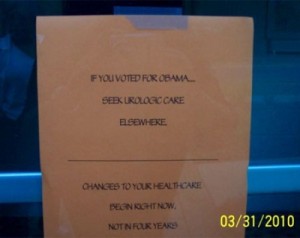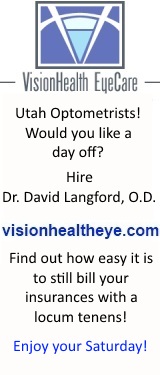I am Dropping Participation with BlueCross
This is the e-mail I just sent to BlueCross:
Dear BlueCross,
It is with regret that I inform you that I wish to terminate my contract with BlueCross and no longer be in your network. I understand that I have to continue seeing BlueCross patients for 90 more days.
If you are interested in why I am leaving you, my accounts receivable with BlueCross patients is unacceptably high.
Since I am an optometrist, I need fast, easy access to whether a member has a routine eye exam benefit (S0620, S0621) and whether a contact lens evaluation is covered (92310).
For non-Regence plans, I have to make lengthy phone calls and navigate through terrible phone trees before finally talking with a representative. This process takes longer than performing the actual exam.
While Regence has a nice website for explaining benefits and is good about paying what I expect, every other BlueCross association is unpredictable about paying what I’m expecting. I often have to send out statements or refunds. Usually statements. Hence the high accounts receivable.
I know this will hit you in the wallet as well since I am the lowest-fee eye doctor in Cache Valley. If in the future BlueCross comes out with a website that allows an optometrist to see vision benefit details for any BlueCross member from any state/association, then feel free to let me know, and I’ll reconsider. I would also reconsider if a new rule allowed one to participate only with Regence and exclude all other BlueCross associations.
Sincerely,
David J. Langford, O.D.
I find it unacceptable in this day and age that I can’t look up vision benefits for an entire insurance company in one place. This probably has something to do with BCBS being independent associations instead of one giant insurance company. It is still ridiculous and a big pain in my side that won’t be there in 90 days.
I feel sorry for my BCBS patients. If it’s any consolation, the Utah State University BlueCross beneficiaries can send in their receipt and get 70% reimbursed for a routine eye exam done out-of-network. Not bad.
Tags: doctors, Income, insurance, patients












